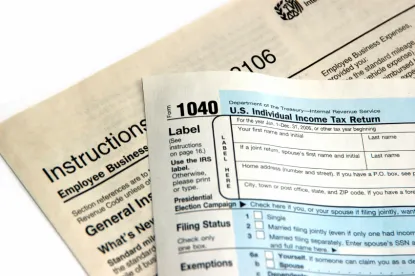The IRS estimates that there are millions of U.S. taxpayers with unreported offshore accounts. Americans with accounts in Switzerland. Dual nationals with accounts in their home country. American expats living and banking in Israel. Green card holders with accounts in India. Although every situation is different there is a common thread – millions of taxpayers have yet to report their foreign bank accounts.
Although American taxpayers have been required to report foreign accounts for decades, compliance has been spotty at best. The Bank Secrecy Act, passed by Congress in 1970, requires anyone with an aggregate of $10,000 or more in foreign financial assets to report those assets annually to the IRS. Reporting is done on an FBAR form, short for Report of Foreign Bank and Financial Accounts.
Beginning in 2008, the IRS began a high profile campaign of pursuing taxpayers with unreported offshore accounts and the banks and bankers that helped them hide their assets. UBS was the first major prosecution of a bank culminating in a record $780 million fine and a deferred prosecution agreement.
In the wake of UBS, the IRS has begun criminally charging individual taxpayers with having unreported accounts. Inevitably, when someone gets indicted and arrested, a big media pitch follows. The IRS is better at managing the media than any other government agency. People are afraid of the IRS.
When an indictment for an unreported offshore account is announced, our telephone rings constantly. Recently an Indian - American physician in Milwaukee was indicted for an unreported Swiss account. In the weeks following the indictment we heard from healthcare professionals throughout the Midwest, all wondering what their obligations were and how best to comply.
Just as every taxpayer that walks in our door is unique, there is no one size fits all solution for unreported accounts. The IRS would have everyone utilize their amnesty program (Offshore Voluntary Disclosure Program) although that solution is often not the best.
One of the most common ways of coming into compliance is what the IRS calls a “quiet disclosure.” For many folks, however, that is an invitation to disaster. To understand why quiet disclosures may not be the best fit, some explanations are necessary.
The IRS wants everyone to come into compliance through its Offshore Voluntary Disclosure Program. If you have possible criminal exposure or have significant unreported offshore income, the OVDP program may best for you.
Before moving on, a brief explanation of the IRS criminal enforcement efforts is necessary. Despite the IRS’ very effective publicity machine, less than 200 people have been indicted for unfiled FBAR forms and many of those folks are bankers, lawyers and accountants who helped taxpayers hide their money.
In other words, the risk of criminal prosecution is low. A good tax lawyer can help you determine if you are at high risk for criminal prosecution. (The willful failure to file an FBAR is a felony punishable by 5 years in prison.) Some of the most compelling reasons to come into compliance are the huge civil penalties for an unreported offshore account.
If you are considered a “low risk” individual by the IRS, the agency’s Streamlined Filing Compliance Procedures. May be a better fit. The penalties are much lower, however there is no guaranteed “get-out-of-jail-free” card and once you enter the Streamlined program there is no going back to traditional amnesty if things don’t work out.
Another method is to work with a lawyer, enrolled agent or accountant and “opt out” of amnesty. By opting out, there are no guarantees although it is possible to receive no penalties. Opt out candidates must demonstrate why the traditional penalties should be abated.
Although all these options may be better choices for many taxpayers, the two most common choices are doing nothing and making a quiet disclosure. With the IRS’s FATCA law (Foreign Account Tax Compliance Act) now in full effect, the chances of getting caught are huge as are the corresponding civil penalties. Doing nothing remains the worst possible option.
That leaves us with “quiet disclosures” or simply mailing in missing FBAR forms to an IRS service center and amending old returns. Tens of thousands of taxpayers do this each year and most without any legal or accounting help. They hope that by simply sending in the missing returns they won’t get caught or penalized.
Prior to October 2014, the IRS strongly discouraged these so called quiet disclosures. Now they are authorized if taxpayer doesn’t need to use the OVDP or Streamlined programs. Although an offshore tax professional can best advise you, common examples could include an offshore account owned by parents but which list the children as signatories. The kids could qualify for a quiet disclosure if they do not receive income from the account and also have no ownership interest in it.
Another possible example is a taxpayer who properly reported and paid all taxes on the income from his or her offshore account but failed to file an FBAR.To avoid future problems and audits, the IRS says that a letter of explanation should accompany the missing FBAR forms.
So what are the risks of making a quiet disclosure? The risks are few if you truly have no interest in the account or have paid all taxes on income from the account. Unfortunately, most people who decide to go the quiet disclosure route don’t consult with a tax professional and many aren’t eligible for the no penalty treatment. For those folks that don’t qualify, the risks are plenty.
The biggest risks are the onerous FBAR penalties. Congress has said that the willful failure to file an FBAR carries a civil penalty up to the greater of $100,000 or 50% of the historical high balance of the account. Penalties can be imposed for multiple years. Although these are the maximum penalties, the maximum penalties have become the norm.
Of course, there is some risk of criminal prosecution as well. If you have already gone the quiet disclosure route and are targeted for audit (we know folks that have), it is still possible to make an argument for abatement of the harsh penalties but amnesty is off the table.
Our recommendation? Consult with a qualified FBAR lawyer of offshore tax professional before taking action. Understand your risks and obligations first. If a quiet disclosure is best for you, make sure you have a letter of explanation. Whatever choice you make, don’t ignore the problem. The surest way to huge penalties and a prison cell is doing nothing.




 />i
/>i

